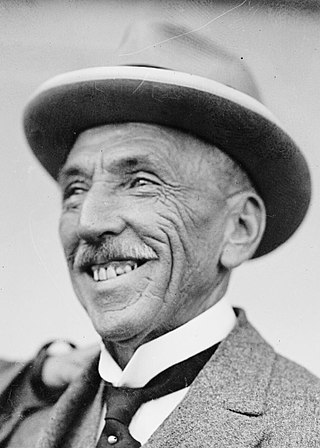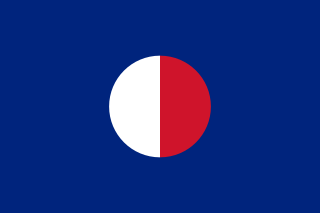
The Christian Democratic People's Party is a right-wing Christian democratic political party in Hungary. It is officially a coalition partner of the ruling party, Fidesz, but is mostly considered a satellite party of Fidesz, and has been unable to get into the Parliament on its own since the 1990s, being unable to pass the election threshold of 5% of the vote. Without Fidesz, its support is now low enough that it can no longer be measured, and even a leading Fidesz politician, János Lázár, stated that Fidesz does not consider the government to be a coalition government.
The by-election held in Fermanagh and South Tyrone on 9 April 1981 is considered by many to be the most significant by-election held in Northern Ireland during the Troubles. It saw the first electoral victory for militant Irish republicanism, which the following year entered electoral politics in full force as Sinn Féin. The successful candidate was the IRA hunger striker Bobby Sands, who died twenty-six days later.

The Indonesian National Party was the name used by several nationalist political parties in Indonesia from 1927 until the 2000s. The first PNI was established by future President Sukarno. After independence, the new PNI supplied a number of prime ministers, and participated in the majority of cabinets in the 1950s and 1960s. The party was fused into the Indonesian Democratic Party in 1973. In the years following the reforms of the late 1990s, a number of parties claiming to be the continuation of previous PNIs stood in elections, but gained only a handful of seats.
The National Democratic Party (NDP) was an Irish nationalist political party in Northern Ireland.

African nationalism is an umbrella term which refers to a group of political ideologies in sub-Saharan Africa, which are based on the idea of national self-determination and the creation of nation states. The ideology emerged under European colonial rule during the 19th and 20th centuries and was loosely inspired by nationalist ideas from Europe. Originally, African nationalism was based on demands for self-determination and played an important role in forcing the process of decolonisation of Africa. However, the term refers to a broad range of different ideological and political movements and should not be confused with Pan-Africanism which may seek the federation of several or all nation states in Africa.
The German Nationalist Party was a First Republic political party in Czechoslovakia, representing the German population of Sudetenland. Its chairman and political face was Rudolf Lodgman von Auen.

The 1919 Australian federal election was held on 13 December 1919 to elect members to the Parliament of Australia. All 75 seats in the House of Representatives and 19 of the 36 seats in the Senate were up for election. The incumbent Nationalist Party government won re-election, with Prime Minister Billy Hughes continuing in office.

The Constitutional Party was a pro-British political party in Malta. It had representatives in the Maltese Legislative Assembly and Council of Government between 1921 and 1945, and again between 1950 and 1953, forming a government between 1927 and 1930 with the support of the Labour Party. A splinter group, the Progressive Constitutionalist Party was represented in Parliament between 1962 and 1966. The party was very much centred on the figure of its long-time leader Lord Strickland, with party supporters colloquially known in Maltese as "Stricklandjani".
The Lithuanian Christian Democratic Party was a Christian-democratic political party in Lithuania.

The Christian Workers' Party was a political party in Malta during the 1960s.
The Malta Workers Party was a political party in Malta.
The Estonian Labour Party was a political party in Estonia. It was formed in 1919 by a merger of the Radical Socialist Party and the Social Travaillist Party, and ceased to exist in 1932, when it merged with other centrist parties to form the National Centre Party. It was a member of government coalitions between 1919 and 1925, and again from 1927 until 1931.
The Estonian People's Party was a centre-right political party in Estonia.
Indirect presidential elections were held in South Korea on 12 August 1960, which saw the election of Yun Posun as President of the Republic of Korea, a ceremonial political position in the Second Republic. Held after the April Revolution which had forced the resignation of Syngman Rhee, it was the only presidential elections to be held during the short era of the Second Republic, as the Republic folded after Park Chung-hee's May Coup the next year. The election was indirect, with a joint session of the House of Commons and Senate, which had been elected in July, acting as the electors. The winning candidate required the assent of two thirds of the members of both houses.
The Maltese Political Union was a political party in Malta.

The Democratic Nationalist Party was a conservative political party in Malta.
The Christian People's Party was a political party in Estonia between 1919 and 1931.
The National Centre Party was a political party in Estonia.
The Democratic Nationalist Party was a conservative political party in South Korea.

The Democratic People's Party is a populist and social conservative political party in Montenegro.









